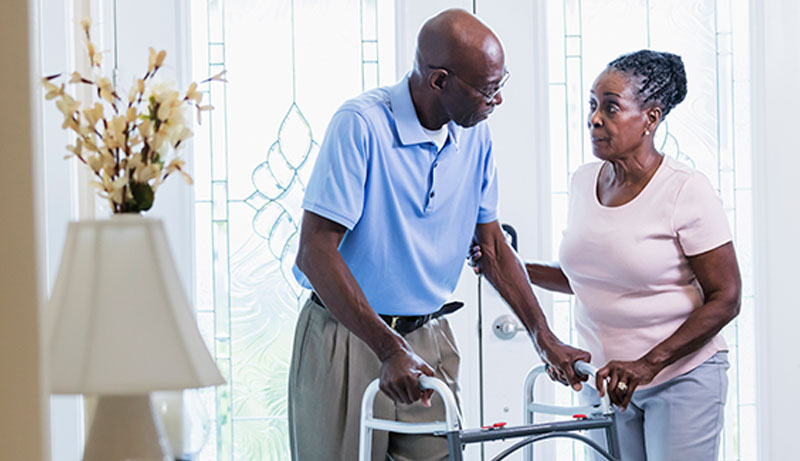
These tips can help family caregivers provide support for a loved one with late stage Parkinson’s, and get the support they need as well.
A Parkinson’s diagnosis has an effect on family members as well as the person diagnosed. Learning about what to anticipate as the illness becomes more serious is key to being ready for all the changes to come and also to making life the best it can be on a daily basis.
During the last few months, we have shared information what to expect in the early and middle stage of Parkinson’s disease. Blog posts have detailed what family members can do to best assist a senior with Parkinson’s, and how Home With You Senior Care, a leading home care agency in Manchester, MD and the surrounding areas, can help. In this last segment in the series, we provide advice about taking care of someone in the late stages of the disease.
Later Stage Parkinson’s
In the late stages of Parkinson’s disease, an increased amount of assistance becomes necessary with activities of everyday living. By definition, the last stages of Parkinson’s are noted by the senior’s inability to live at home independently. At first, walking and standing may perhaps remain possible, but with pronounced difficulty, and as the illness continues to develop, the individual will no longer be able to get out of bed or a chair unassisted.
Alongside an elevated risk for falls, hallucinations and delusions can also be common. As a result, full-time, around-the-clock caregiving is necessary to ensure well-being.
The Impact of Late Stage Parkinson’s on Family Caregivers
At this point, the stress and day-to-day expectations of caregiving may take a toll on a caregiver’s own health. It is vitally important for family care providers to reach out and accept help, to stay socially connected, and to make respite care a high priority. It is just not possible for one person on their own to handle the around-the-clock care necessary for someone in late stage Parkinson’s.
How Caregivers Can Assist with Late Stage Parkinson’s Care
With increased hands-on care necessary, it is essential for caregivers to learn how to safely and efficiently provide this help to decrease the possibility of doing harm to either themselves or the person being cared for.
If the older adult isn’t already receiving physical therapy services, ask the doctor for a referral. The physical therapist, while helping improve the person’s ability level, can also advise family caregivers on the top methods for hands-on assistance.
One new symptom that frequently arises in the later stages of Parkinson’s is freezing, when the person is suddenly (but temporarily) unable to move. Ways to help break a freezing episode include:
- Using a laser pointer and asking the individual to step on the light
- Using a rhythmic noise, such as clapping, and encouraging the person to take a step with every clap
- Playing songs and prompting the person to walk to the beat
Of course, stay close at hand when the person is mobile to avoid a fall.
Be sure to provide lots of additional time for daily activities such as getting dressed and eating, which are likely to take more time now. This is important in conserving the person’s self-sufficiency. Even if it requires longer to accomplish an activity, it’s always better to foster as much self-reliance as you possibly can.
Emotional and mental health issues also may arise now, including depression, memory problems, anxiety, and dementia. These ailments can be hugely overwhelming for a family caregiver to deal with and should be brought to the attention of a loved one’s physician.
Home With You Senior Care’s professional senior care team is here to assist you and the senior you love through each stage of Parkinson’s. Especially in these final stages of the illness, having a care partner you can trust and rely on is a must.
Reach out to us at 410-756-0959 for a complimentary in-home assessment to learn more about how our home care agency in Manchester, MD and serving nearby areas can help by easing the transitions through Parkinson’s for both you and the older adult in your care. For a full list of the all of the communities where we provide our award-winning care, please visit our Locations Served page.
